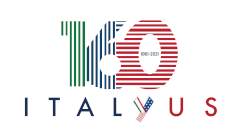Innovation – Technology
The United States and Italy have been leading the processes of technological innovation since the second industrial revolution. In the second half of the nineteenth century, scientists and engineers from the two countries developed the applications of electromagnetism that allowed the rapid development of the industrial system. Galileo Ferraris and Nikola Tesla discovered in a substantially independent way the principle of the rotating magnetic field, which allowed the realization of the asynchronous motor in alternating current and consequently the production and distribution of electrical energy over great distances. In the field of communications, Tesla himself and our own Marconi (Nobel Prize in Physics) fought over the paternity of the patent for the invention of the radio, while Meucci invented the telephone, which was then patented independently by Alexander Graham Bell, as recognized in 2002 by the U.S. Congress. Between the end of the 19th and the beginning of the 20th century, the automotive industry saw the emergence of large manufacturing companies, Ford and General Motors in the USA and FIAT (Fabbrica Italiana Automobili Torino) in Italy.
The years of the third industrial revolution, which can be placed approximately in the second half of the twentieth century, saw the affirmation of the USA as an industrial, technological and nuclear power. Enrico Fermi (Nobel Prize in Physics), one of the boys from Via Panisperna, headquarters to the Royal Physics Institute of the University of Rome, who moved to the USA due to racial laws, designed the first nuclear fission reactor.
With the advent of electronics and its applications, cooperation between Italy and the United States was further strengthened and benefited from the contribution of Italian scientists, researchers and innovators. The first programmable desktop computer, considered by many to be the first personal computer, emblem of that period, was the P101 designed by the Italian company Olivetti and showcased in New York in 1965. And it was another Italian physicist, Federico Faggin (U.S. National Medal of Technology and Innovation), a graduate from the University of Padua who worked in Olivetti first and then in SGS Fairchild, who designed in the USA the first commercial INTEL 4004 microprocessor, the Intel 8008 and 8080 processors, and developed the MOS (metal - oxide - semiconductor) technology with silicon gate, which proved essential for the development of digital information processing systems.
The scenario has completely changed in recent years, characterized by a rapid technological transition, considered by some to be the fourth industrial revolution. A digital transformation process has now begun, further accelerated by the recent pandemic, which will have a disruptive impact on all areas of human activity and which arises from the ability of accessing shared computational resources unimaginable until some time ago (cloud computing) , from the availability of a massive amount of data, produced by a growing number of connected intelligent objects (big data & internet of things), from the rapid development of advanced data analysis techniques and methodologies (machine learning & deep learning) and consequently from the promising new season of artificial intelligence.
In this context, the collaboration between Italy and the United States is further developing, making use of more structured synergies between universities, research institutions, and large companies of the two countries, and extends to all emerging technological fields: information technologies and quantum technologies; advanced manufacturing and robotics; electric, connected and autonomous systems and vehicles; energy systems and energy transition; health technologies; space sciences and technologies.
The main events in this field will cover Italy-USA collaborations in some strategic technological areas in which the two countries are planning huge investments in human and infrastructural resources. The topics of artificial intelligence and energy transition will be privileged.
The celebrations will be concluded by the second ITALY-USA Innovation Forum - in continuity with the first edition held at Stanford in 2019 at the presence of the President of the Italian Republic Mattarella. Capitalizing on the themes developed by each event, the Forum will focus on the actions and policies necessary to guarantee a sustainable and inclusive technological, ecological and energy transition process.


